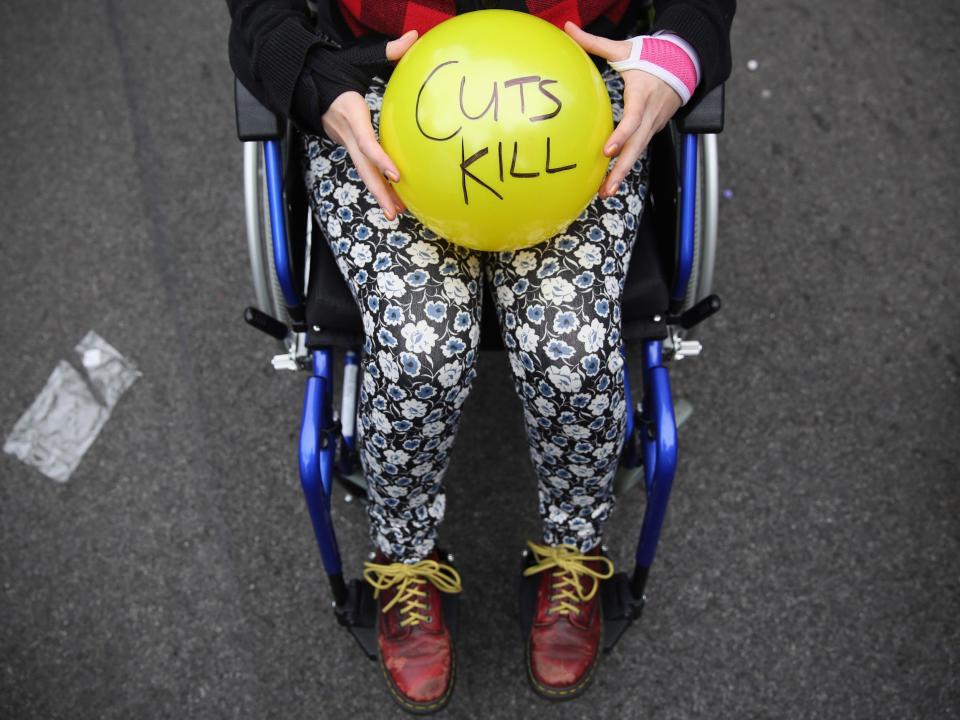Majority of Britons want to end austerity, survey shows

Public support for austerity is waning, with more people willing to pay higher taxes to increase funding for public services, Britain’s largest social research organisation has found
Over four in five (83 per cent) of people would support increased spending on health, 71 per cent were in favour of more money for education and 57 per cent would support extra funding for the police.
Support for higher taxes for public spending rose to 48 per cent in 2016 – its highest level since 2004 - the survey of 2,942 people by the National Centre for Social Research, found.
For the first time since the financial crash in 2007 and 2008, more people now favour increased taxation to fund public services than the 44 per cent who want levels to remain the same.
“People’s tolerance for austerity is drying up, even if that means higher taxes,” said Roger Harding, head of public attitudes at the National Centre for Social Research.
“This leftwards tilt on tax and spend is matched by a long-running conservatism on national security and law and order. In all, people want a more active state that’s firm but fairer.”
The poll also indicated that attitudes towards benefits claimants had also softened.
The proportion of people who said most unemployment claimants are “fiddling” their finances dropped to 22 per cent in 2016 - the lowest level since the question was first asked in 1986.
The percentage of people who said that most social security claimants do not deserve help also dropped – from 32 per cent in 2014 to 21 per cent in 2016 – the lowest ever level found by the survey.
However, a difference between perceptions of tax-dodging and benefits fraud persisted.
Almost two thirds (61 per cent) of people thought it wrong for benefit claimants to use legal loopholes to increase their payments, while 48 per cent thought it wrong to use legal loopholes to pay less tax.
There was also more support for more spending on benefits for the disabled than for pensioners for the first time since the survey began.
Seven in ten (67 per cent) now prioritise spending on benefits for disabled people, up from 53 per cent in 2010.
But the proportion of people identifying retirement pensions as being among their top two priorities for extra welfare spending, fell from 72 per cent in 2010 to 60 per cent.
The survey concluded: “It appears that gradually the public are beginning to react against that experience as reflected in declining support for cutting expenditure as a way of helping the economy and some increase in support for spending on public services.”

 Yahoo News
Yahoo News 